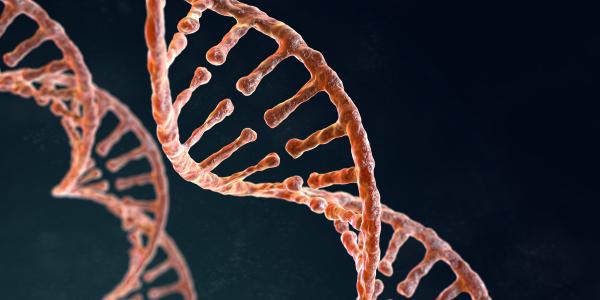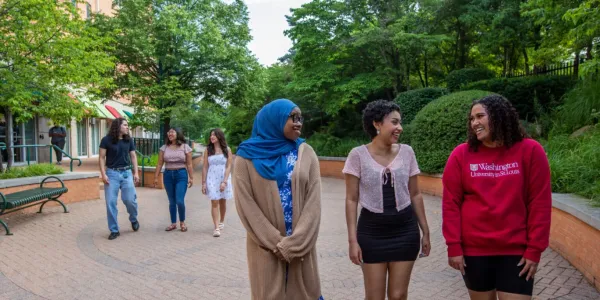The cluster hiring initiative aims to combine chemistry, physics, and biology to answer life’s big questions.
Driven by a desire to address fundamental questions about life on Earth, the departments of chemistry, physics, and biology have launched Rules of Life, a hiring cluster and research initiative that will inspire new collaborations and scientific breakthroughs.
The Rules of Life initiative was conceived of and created by the three department chairs: Jen Heemstra, the Charles Allen Thomas Professor of Chemistry; Henric Krawczynski, the Wilfred R. and Ann Lee Konneker Distinguished Professor in Physics; and Ram Dixit, professor of biology.
“We envisioned a hub of researchers using cutting-edge theoretical, computational, artificial intelligence, and data-science methods to address fundamental biological questions,” Dixit said. “The goal of this initiative is to catalyze synergistic research involving scientists working across disciplines.”
The initiative will serve as an anchor for scientific collaborations, Krawczynski added. "The three departments have a lot in common, and we can benefit in many different ways from working closer together.”

As Heemstra explained, some fundamental questions about the way life works require input from multiple disciplines. “Why does life on Earth work the way that it does? What are the rules by which life might exist or not exist in the universe? To tackle those problems, you really need the combination of chemistry, biology, physics, and other fields like data science.”
To help answer the big questions, the departments have recruited and hired new faculty who can blend disciplines and cross boundaries. Zhiling “Zach” Zheng, a computational chemist who uses AI to accelerate materials discovery, joined the Department of Chemistry as an assistant professor in July. Trevor GrandPre, a computational biophysicist who studies the physics of gene regulation and other biological processes, joined the Department of Physics as an assistant professor.
Computational biophysics will be an especially powerful and dynamic topic in the next decade. “We expect that pivotal discoveries in this field will require specialists from the three areas of our department working in unison," Krawczynski said.
Three additional hires will join WashU next year. Judith Hoeller, a computational physicist who studies neurons, will be an assistant professor of physics. Merlijn Staps, a computational biologist who develops mathematical tools to gain insights into evolution and ecology, will join as an assistant professor of biology. And James Holehouse, a computational biologist who studies the mathematics of gene expression, will join as an assistant professor of biology.

Current faculty in the three departments will also have opportunities to participate in the Rules of Life initiative. The department chairs are planning an Oct. 10 kick-off event where interested faculty can learn more about the project, its goals, and opportunities for collaboration. “You won’t have to formally join to be a member,” Heemstra said. “It’s going to be a group of people who get together to think about these grand challenges. From there, they can form research teams and apply for proposals.”
"The kick-off meeting will be the first of a series in which we will connect the new cluster with similar related activities on our campus, with the medical school, and with the broader national and international community,” Krawczynski said. “The three departments have already planned additional activities to increase our collaboration, including an annual retreat followed by opportunities to apply for departmental support for novel collaborative research."
Thanks to those collaborations and the skills of the newly hired faculty, the Rules of Life initiative should pay exciting and important dividends for years to come, said Feng Sheng Hu, the Richard G. Engelsmann Dean of Arts & Sciences.
“The Rules of Life embodies everything that makes Arts & Sciences a powerhouse for groundbreaking research: collaborative faculty utilizing cutting-edge approaches to transform the way we see the world,” Hu said. “I would like to commend these department chairs for their bold vision and hard work in making this cluster hire a success.”





